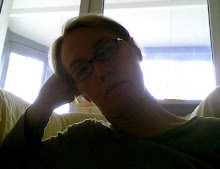This year Russia has produced a music video in which they parody their own Eurovision entry. With an amusingly selected audience they anticipate their success at Eurovision Song Contest, but there is to pay a high price: What you see in the end is fun-fascism.
Actually the song sounds too nice to derive a critical text. But is this appeal to humanity not almost too much? Wouldn't it be a shame not to describe the well made discrepancy between tonal and pictorial language of the clip? So I am going to start:
Just as trustworthy as German singer Nicole the young singer Dina Garipova dreams of a perfect world, too. She emphasizes her dream with strong voice and catchy power ballad. But the song is loaded with rhetorical questions that take general agreement for granted.
In the clip public’s consent is taken to the extreme. But in contrast to Dina’s wide-open heart the film setting acts in a claustrophobic hermetically shielded room. The old-fashioned proscenium stage provides a clear division of roles between transmitter and receiver, so that the constant repetition of words as "together" and "we" becomes contradictory. With the line "What if we came together as one" the song refers to this year's Eurovision slogan of Sweden:
"We Are One"
We leave the music competition - the organization is negotiable. And so we are confronted with a repressive slogan that pretends harmony, but negates different opinions and criticism and excludes tolerance. Such slogan would have fit to a church congress or political party conference, but not to a competition of pop music with 39 countries.
In the clip we observe people charged with emotion. They more and more lose any critical distance from what is happening. They appeare affected, enthusiastic, blinded and stupefied. Does this music clip aktually spoil the
fun? A little bit, but that's ok. Regarding the choice of such a slogan I do not believe in ignorance or accident. Perhaps it is to distract attention from the fact that there are planned political events in Malmö, where German and Sweden organizers will probably again evoke discussions about the exclusion of some countries: "[...] it is therefore relevant to ask about the significance of the places at the ESC is performed.”
The song "What If" is written by Swedish producers Gabriel Alares and Joakim Björnberg in cooperation with the Russian musician Leonid Gutkin. From Sweden, with Sweden, for Sweden, in Sweden... Have I to add that Dina Garipova
is signed by Universal Music?
Thus the Russian contribution is probably no alternative to the simplified strategies for success at the ESC, but their video at least makes us reflect the conditions of success and our role as fans and supporter.
...
...




Keine Kommentare:
Kommentar veröffentlichen